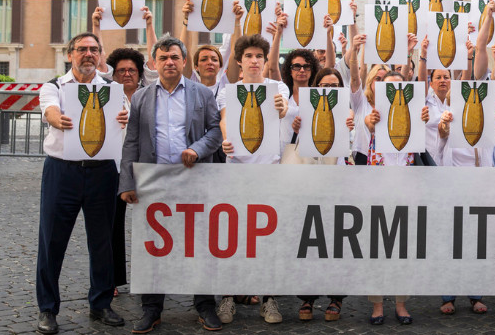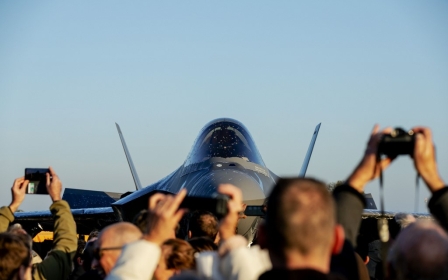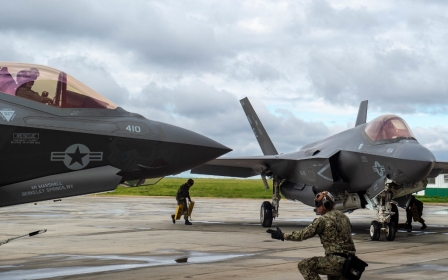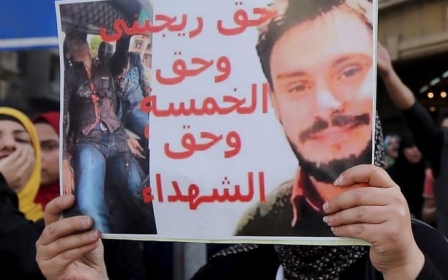Italy blocks arms exports to Saudi Arabia and UAE

Italy has stopped arms exports to Saudi Arabia and the United Arab Emirates after concerns were raised that Italian weapons could be used to kill civilians in Yemen.
Campaign groups described the decision as "historic" as the ruling means there will be a complete blockade instead of a suspension on weapons sales to the Gulf countries.
The Italian Peace and Disarmament Network, a coalition of organisations campaigning against Italy's arms sales, said the move would stop the supply of at least 12,700 bombs.
'This sets a vitally important precedent from a major European arms exporter...the spotlight now has to be turned on the UK, and other arms-dealing governments who have played a central role in enabling the conflict'
- Andrew Smith, Campaign Against the Arms Trade
Riccardo Noury, a spokesperson for Amnesty International in Italy, said a coalition of organisations had campaigned for the decision which applies to six difference licenses.
"This decision includes licenses granted to Saudi Arabia in 2016 covering almost 20,000 MK series aerial bombs worth over 411 million euros," Noury told Middle East Eye.
"Revoking this license alone will also cancel the supply of over 12,700 bombs to Saudi Arabia and the UAE."
Manlio Di Stefano, the undersecretary for foreign affairs, confirmed to the il Fatto Quotidiano daily the decision to halt arms sales was made last week.
"The political decision was already made last week when the prime minister accepted a recommendation made last week by the foreign minister to halt arms exports to Saudi Arabia and the UAE," said Di Stefano.
Andrew Smith from the Campaign Against the Arms Trade said the Italian decision sets a "vitally important precedent" for other European countries.
"The Italian government should not have been arming Saudi forces in the first place. The arms sales they have supported have fuelled a brutal war and helped to create a humanitarian catastrophe," Smith told MEE.
"However, this sets a vitally important precedent from a major European arms exporter, especially in light of the announcement from the US.
"The spotlight now has to be turned on the UK, and other arms-dealing governments who have played a central role in enabling the conflict. These arms sales must stop, and so must the political support that has underpinned them."
Earlier this week, US President Joe Biden issued a temporary pause to billions of dollars worth of arms sales to Saudi Arabia and the UAE as his administration reviewed the exports.
The Wall Street Journal said the freeze on arms sales would include the sale of precision-guided weapons to Saudi Arabia and F-35 fighters to the UAE.
Italian Prime Minister Giuseppe Conte previously said in 2018 that his government wanted to end arms sales to Saudi Arabia because of its involvement in Yemen and the murder of journalist Jamal Khashoggi.
Middle East Eye propose une couverture et une analyse indépendantes et incomparables du Moyen-Orient, de l’Afrique du Nord et d’autres régions du monde. Pour en savoir plus sur la reprise de ce contenu et les frais qui s’appliquent, veuillez remplir ce formulaire [en anglais]. Pour en savoir plus sur MEE, cliquez ici [en anglais].




